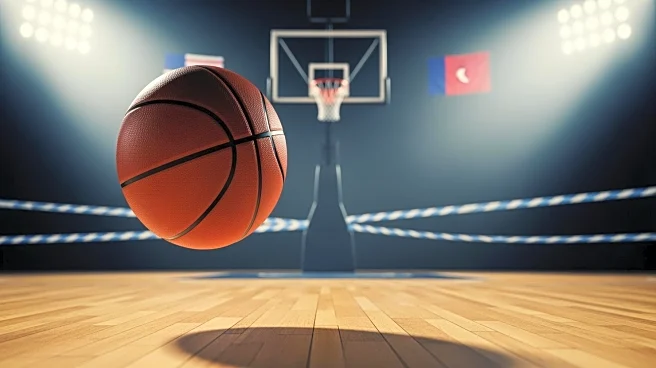What's Happening?
Anthony Edwards is set to return to the court for the Minnesota Timberwolves in their upcoming game against the New York Knicks. Edwards, who has been sidelined since October 26 due to a hamstring injury, was cleared for contact basketball activities
earlier this week. His return is expected to significantly enhance the Timberwolves' performance, as the team has struggled to maintain consistency in his absence, recording a 2-2 record. Edwards, a key player for the Timberwolves, has been instrumental in their offensive strategy, drawing significant defensive attention from opponents. Prior to his injury, Edwards was averaging 25.7 points and 4.0 rebounds per game, with impressive shooting percentages of 51.9% from the field and 47.4% from three-point range.
Why It's Important?
The return of Anthony Edwards is crucial for the Minnesota Timberwolves as they aim to improve their standing in the Western Conference. Edwards' presence on the court not only boosts the team's scoring potential but also alleviates pressure on other players like Julius Randle and Donte DiVincenzo, who have been leading the scoring in his absence. Edwards' ability to draw defensive attention opens up opportunities for his teammates, potentially leading to better team performance and more wins. His return could also impact the Timberwolves' playoff prospects, as they rely heavily on his scoring and playmaking abilities.
What's Next?
With Edwards back in the lineup, the Timberwolves will look to capitalize on his return to gain momentum in the season. The team will likely adjust their strategies to integrate Edwards back into their offensive and defensive schemes. As Edwards continues to recover and regain his form, the Timberwolves will monitor his performance closely to ensure he remains healthy and effective. The upcoming games will be crucial for the Timberwolves to assess Edwards' impact and make necessary adjustments to optimize their gameplay.
Beyond the Headlines
Edwards' return also highlights the importance of player health and rehabilitation in professional sports. The Timberwolves' careful management of his injury recovery reflects broader trends in sports medicine and athlete care, emphasizing the need for comprehensive rehabilitation programs to prevent long-term damage and ensure peak performance. This approach could influence how other teams handle player injuries, prioritizing long-term health over immediate returns.















